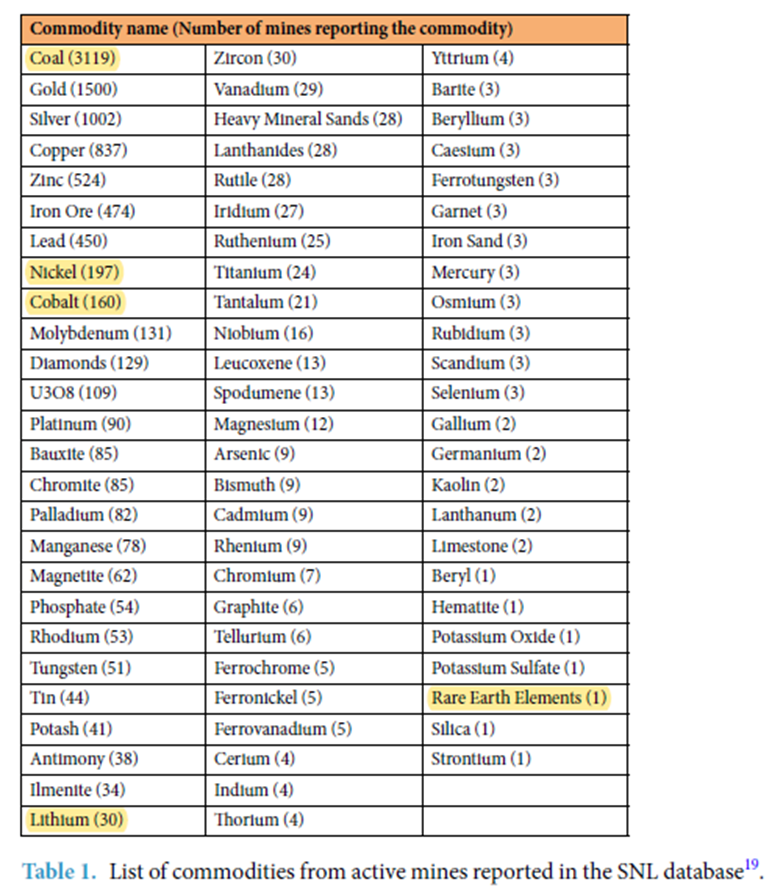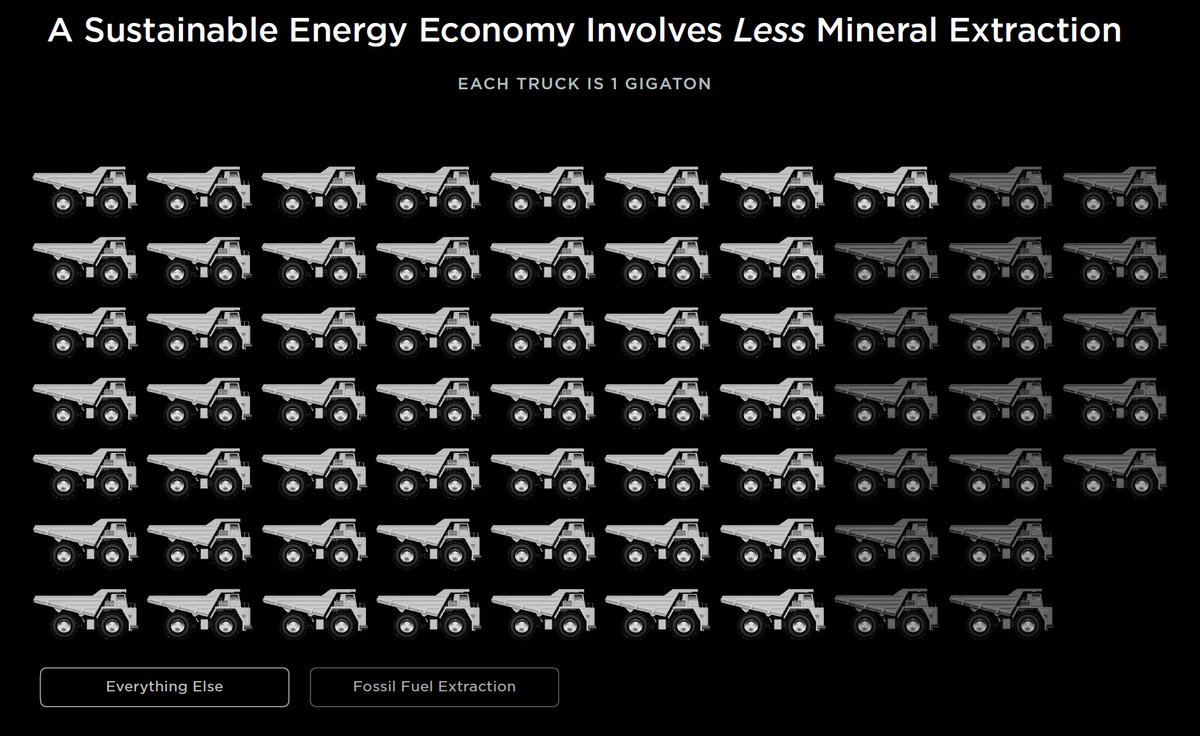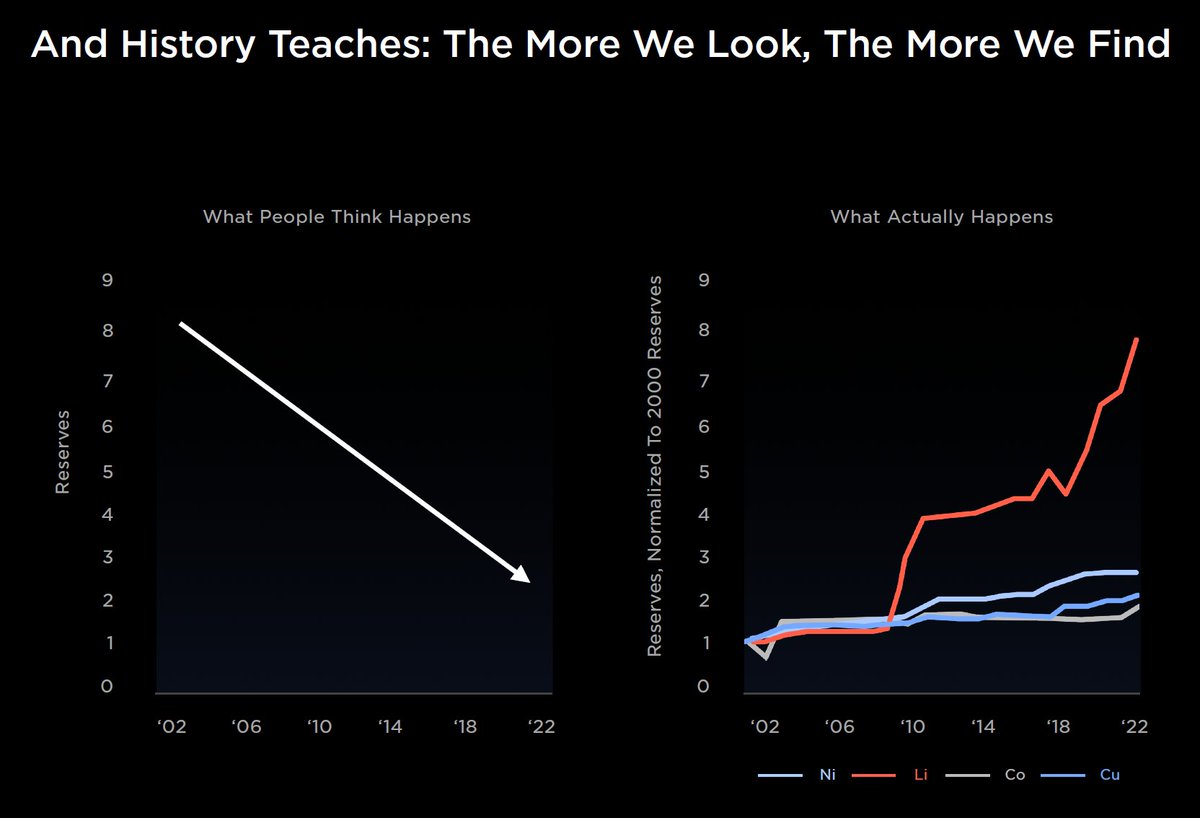Have others told you there are not enough raw materials to transition to 100% renewables?
Did they say minerals are the new oil?
Maybe they believed @SimonMichaux of @GTK_FI?
If so, please explain to them they were fooled, by showing them this thread.
Did they say minerals are the new oil?
Maybe they believed @SimonMichaux of @GTK_FI?
If so, please explain to them they were fooled, by showing them this thread.

Michaux has become a rockstar with his “proof” that renewables take too much energy and materials. He's all over the news/twitter.
He appeals to 2 groups:
1) Those who want to keep using fossil fuels
2) Those who want to deny green growth is possible
2 powerful constituencies!
He appeals to 2 groups:
1) Those who want to keep using fossil fuels
2) Those who want to deny green growth is possible
2 powerful constituencies!

But Michaux is clearly not an expert on renewables while it's my job at the @TUeindhoven.
And there’s no polite way to say this:
Michaux’s calculations are utter 🐂💩.
Energy modelers debate a lot – e.g. on nuclear – but I think we can all agree on this.
https://twitter.com/AukeHoekstra/status/1557466581185224704
And there’s no polite way to say this:
Michaux’s calculations are utter 🐂💩.
Energy modelers debate a lot – e.g. on nuclear – but I think we can all agree on this.
Michaux's report is not science either (it would not pass peer review) so it's not rebutted in a journal.
But @visaskn just wrote a detailed debunk:
I encourage you to read it in its entirety (50 tweets) because it's a treasure trove of corrected errors.
But @visaskn just wrote a detailed debunk:
https://twitter.com/visaskn/status/1593944033218502657
I encourage you to read it in its entirety (50 tweets) because it's a treasure trove of corrected errors.
THE problem is that Michaux assumes more than a HUNDRED times too much stationary battery storage as a requirement to deploy solar and wind.

https://twitter.com/visaskn/status/1593944090155982849?s=20&t=U0rDeH8Sni-UZEzYbzG0DA

I think the best study of a world running on 100% renewables (so ALL ENERGY with ZERO fossil fuel or nuclear) was done by my friend @ChristianOnRE.
He pegs it at 5 hours of stationary battery storage instead of Michaux’s month.
That’s roughly 150x less!
He pegs it at 5 hours of stationary battery storage instead of Michaux’s month.
That’s roughly 150x less!
https://twitter.com/ChristianOnRE/status/1593525394694701056
I should add that Michaux's total battery amounts are not 150x too high but “only” around 10x too high because electric transportation will indeed require a lot of lithium batteries.
But still: all his estimates for the really critical stuff are TEN TIMES TOO HIGH!
@KetanJ0
But still: all his estimates for the really critical stuff are TEN TIMES TOO HIGH!
@KetanJ0
He also assumes stationary batteries use Nickel Cobalt and Manganese while experts will tell you they will use the heavier but cheaper and longer lasting LFP (lihtiumphosphate) batteries that use zero nickel and cobalt. Or flow batteries. Or sodium batteries. (No lithium needed.)
Now look at this “smoking gun” from his report again, knowing everything is 10x too high, stationary storage will hardly use nickel and cobalt, and copper can usually be replaced by aluminum if you can live with slightly thicker wires.
It's complete nonsense!
It's complete nonsense!

Lithium is the most serious problem. There is more than enough of the stuff in total (and 5000x more in seawater if we want to go crazy) but we need to scale up mining 10x the coming decades.
Still: the amount we need is TINY compared to other metals.

Still: the amount we need is TINY compared to other metals.
https://twitter.com/AukeHoekstra/status/1586847277846503426

And although we should certainly make mining cleaner and safer, please understand that the materials we need for the transition to sustainable energy are a drop in the bucket compared to building materials, agriculture, and fossil fuels.
We should get our priorities straight!
We should get our priorities straight!

In total 0.1% of the earths surface is used for mining. Maybe 0.0001% for the stuff everybody is talking about when they think of renewables.
The reduction in coal mining alone dwarfs the increase in the stuff we need for renewables.

The reduction in coal mining alone dwarfs the increase in the stuff we need for renewables.
https://twitter.com/AukeHoekstra/status/1559253330228133888

When it comes to our destruction of our natural habitat, I can’t avoid talking about the elephant in the room: agriculture.
Agriculture uses 50% of land.
That’s 500x more than mining and ~500000x more than lithium, cobalt and nickel.

Agriculture uses 50% of land.
That’s 500x more than mining and ~500000x more than lithium, cobalt and nickel.
https://twitter.com/AukeHoekstra/status/1559253339505827841

To put it differently: if we all eat 1% less meat (or if we make cultured meat cheaper and healthier), we save more species than if we abandon all mining that’s needed for the shift to renewables.
ourworldindata.org/land-use-diets
ourworldindata.org/land-use-diets

And don’t get me started on EROI (Energy Return On Investment), something Michaux is also droning on about.
As soon as EROI is much higher than 1 it stops being an issue.
The EROI of wind and solar is closer to 20.
It’s a total non issue.
@MLiebreich
As soon as EROI is much higher than 1 it stops being an issue.
The EROI of wind and solar is closer to 20.
It’s a total non issue.
@MLiebreich
https://twitter.com/big_lithium/status/1341738852906614784
And I agree the land requirements of wind and solar are non trivial in densely populated countries!
But don’t be fooled into thinking they are a showstopper. Worldwide we need ~0.1% to 0.3% of land to power the world with solar and wind.

But don’t be fooled into thinking they are a showstopper. Worldwide we need ~0.1% to 0.3% of land to power the world with solar and wind.
https://twitter.com/AukeHoekstra/status/1537837613352206337

As for renewable minerals being the new oil…
1)
Amounts (in kg and $$$) are TINY compared to fossil and found everywhere.
2)
When oil deliveries stop => everything stops. When lithium deliveries stop => less new electric cars.
3)
You BURN fossil fuels. You can recycle minerals.
1)
Amounts (in kg and $$$) are TINY compared to fossil and found everywhere.
2)
When oil deliveries stop => everything stops. When lithium deliveries stop => less new electric cars.
3)
You BURN fossil fuels. You can recycle minerals.

Does all this mean I see no problems?
I see lots of problems!
Less meat, smaller vehicles (preferably electric or human powered), less long distance flying, recycling, circular economy... we must change radically to stay within planetary boundaries!
doughnuteconomics.org/news/42
I see lots of problems!
Less meat, smaller vehicles (preferably electric or human powered), less long distance flying, recycling, circular economy... we must change radically to stay within planetary boundaries!
doughnuteconomics.org/news/42

And I agree wholeheartedly with the people saying resource use (also for renewables) should become super important!
Especially in rich countries we should get more locally and/or from sustainable and just sources. There's plenty of work to do there!
Especially in rich countries we should get more locally and/or from sustainable and just sources. There's plenty of work to do there!
But using nonsensical calculus to satisfy myopic fantasies is not the way to solve the climate crisis.
Some solutions are better than others and renewables are a darn good option if we want cheap and abundant energy while staying within planetary boundaries.
/end
Some solutions are better than others and renewables are a darn good option if we want cheap and abundant energy while staying within planetary boundaries.
/end
Here's some nice visuals from the @Tesla Investor day that underscore the point that resource scarcity is not going the stop the transition to renewables (ht @M_Steinbuch): tesla-cdn.thron.com/static/AA7YQM_… 







• • •
Missing some Tweet in this thread? You can try to
force a refresh











